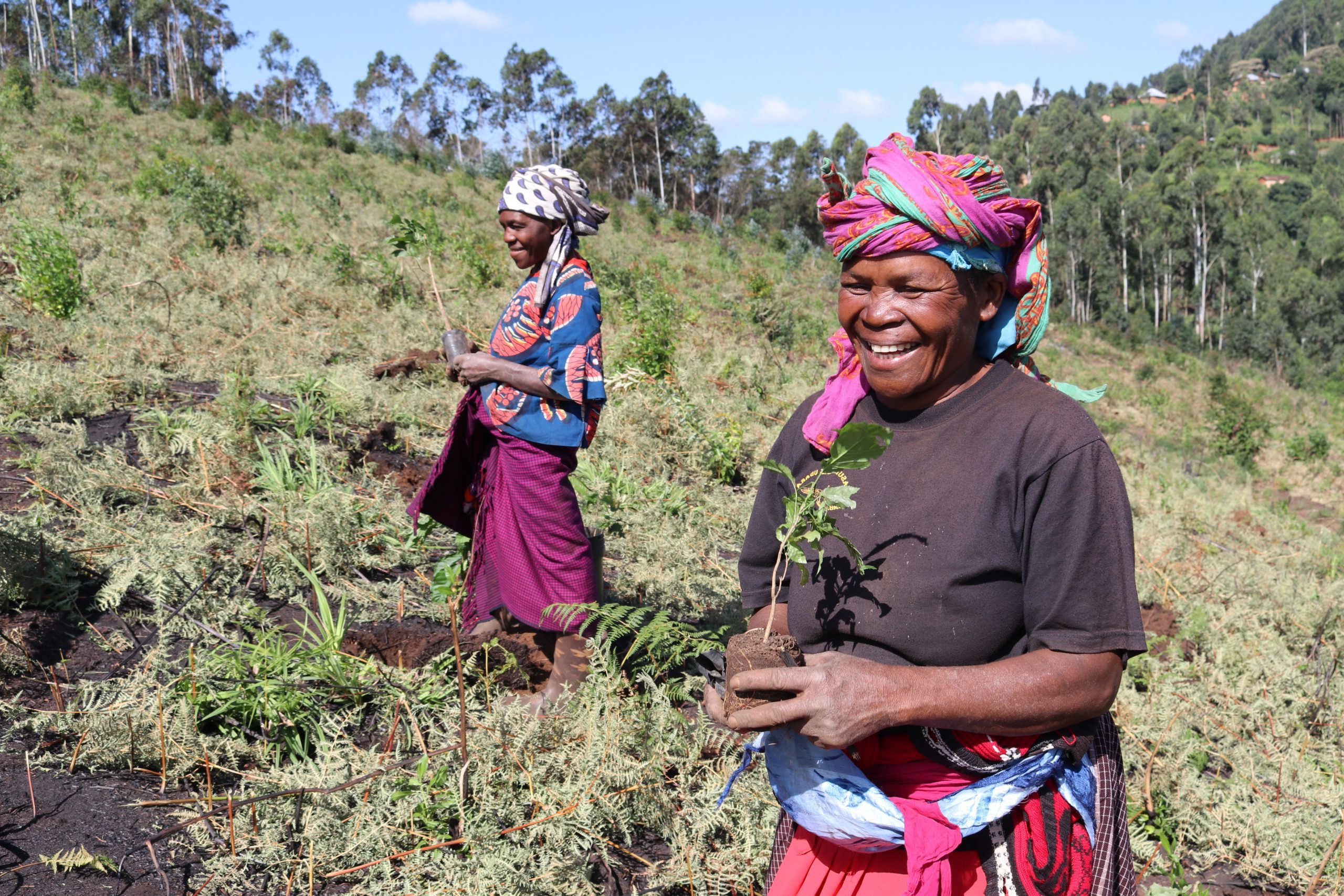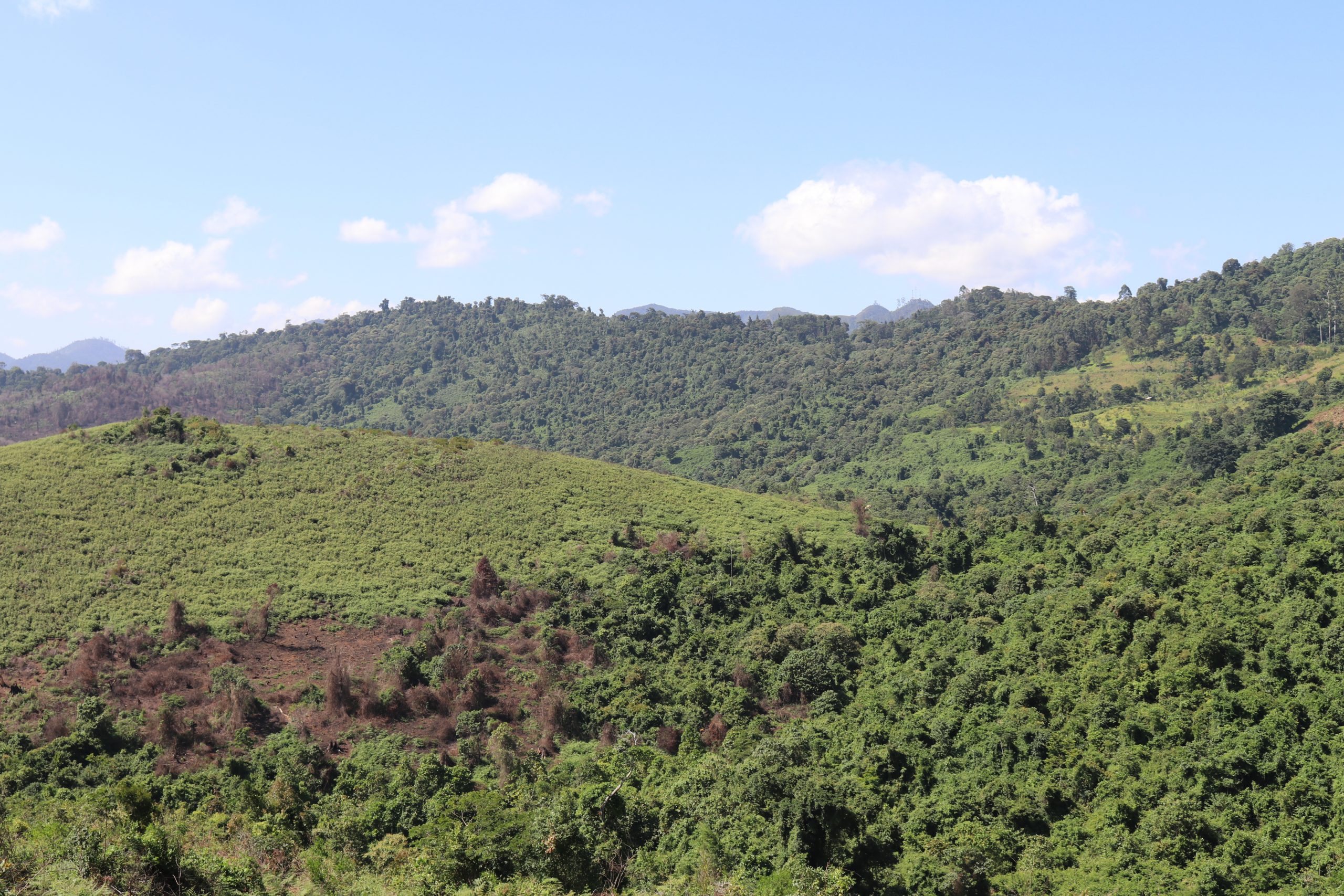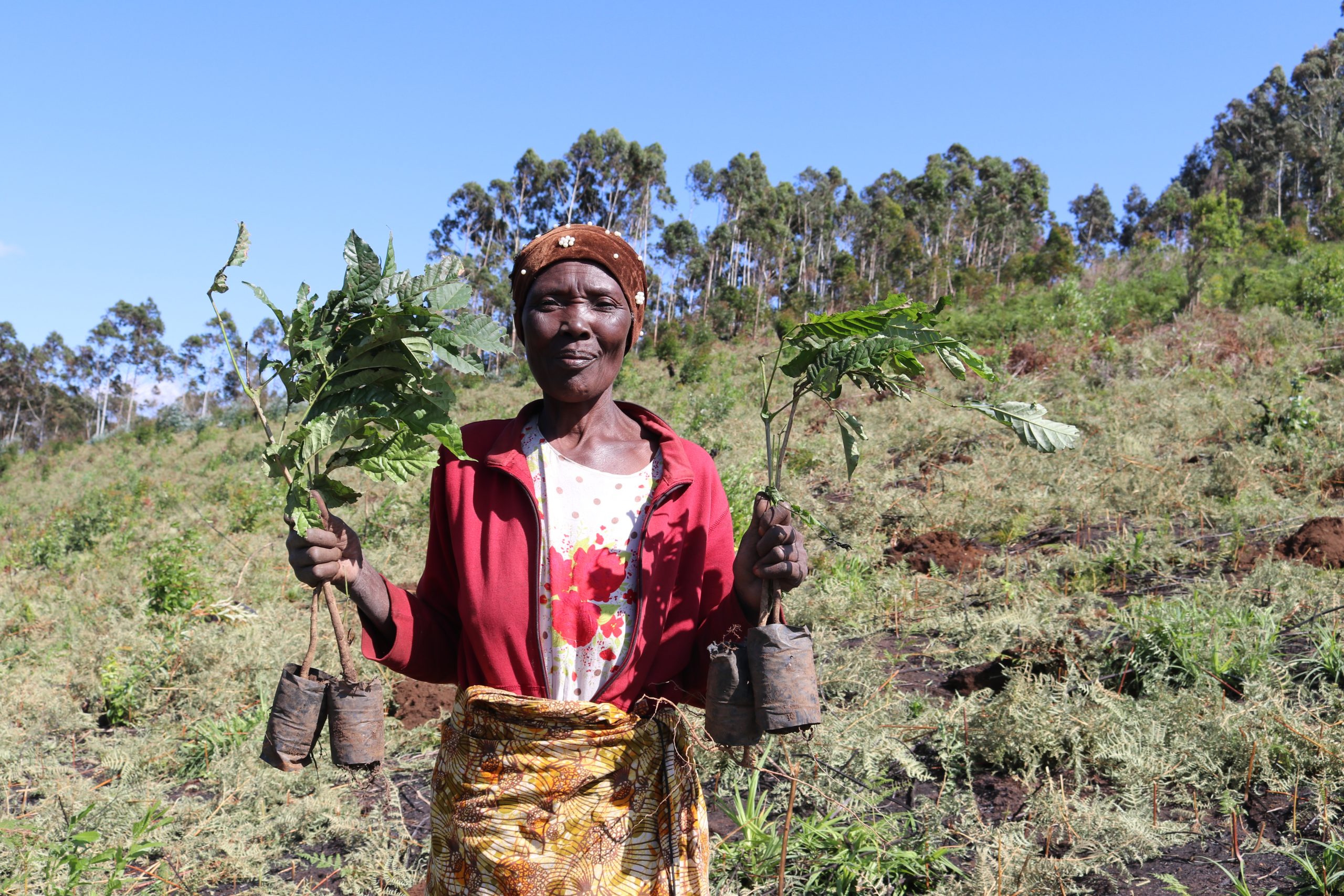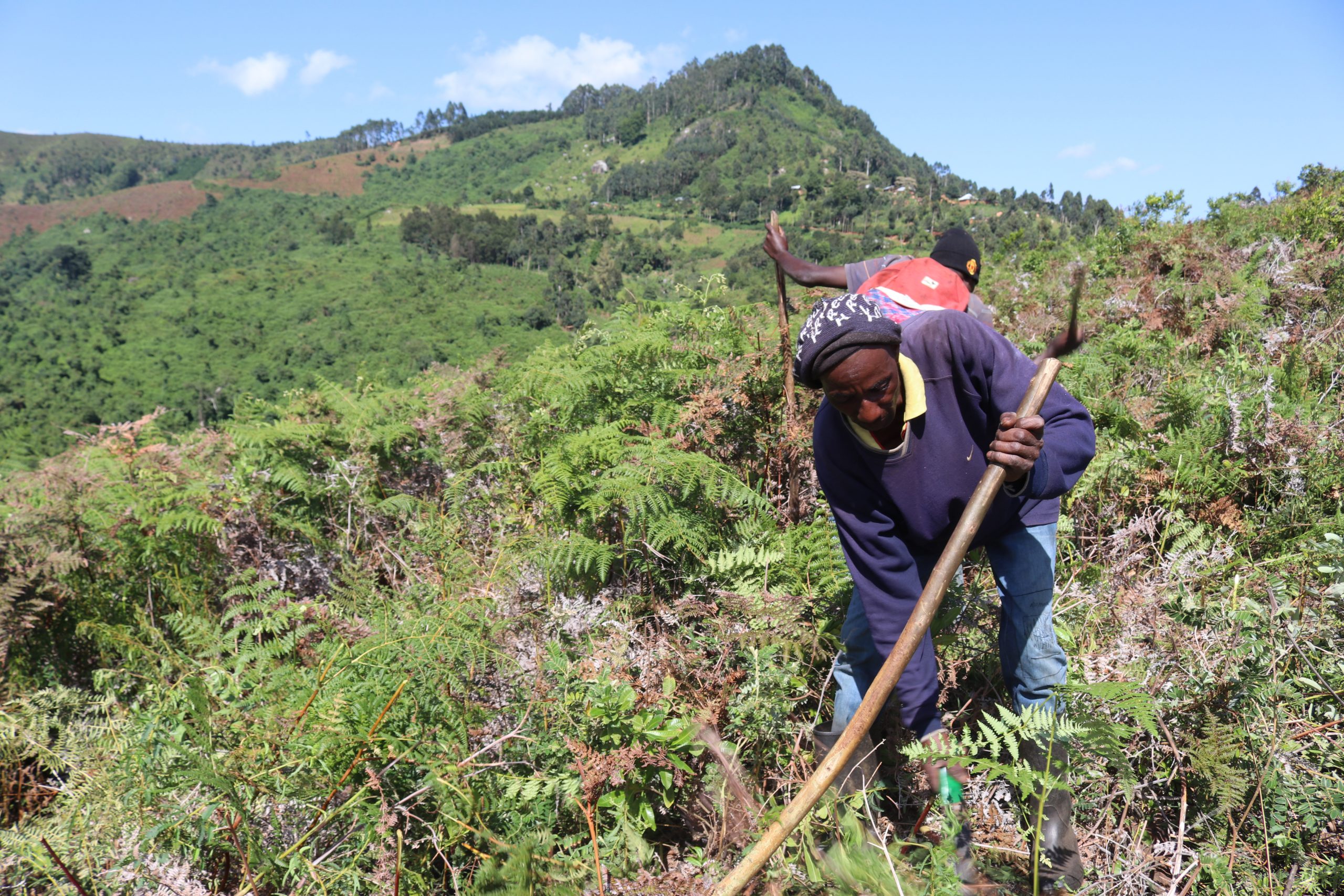Our Impact
Through funds received from Trillion Trees, WWF has been working to restore the forests of the Usambara Mountains which are both important for water supply and for hydropower for the country of Tanzania. WWF has worked with two civil society organisations, Friends of Usambara and 4H Tanzania to engage communities in the area. By the end of December 2021, 67,047 trees were planted in water sources, 10,800 trees planted on farms and 2,500 trees were planted on ridges, making a total of 80,347 planted trees.

 Gaudencia Kalabamu/WWF TCO
Gaudencia Kalabamu/WWF TCO







